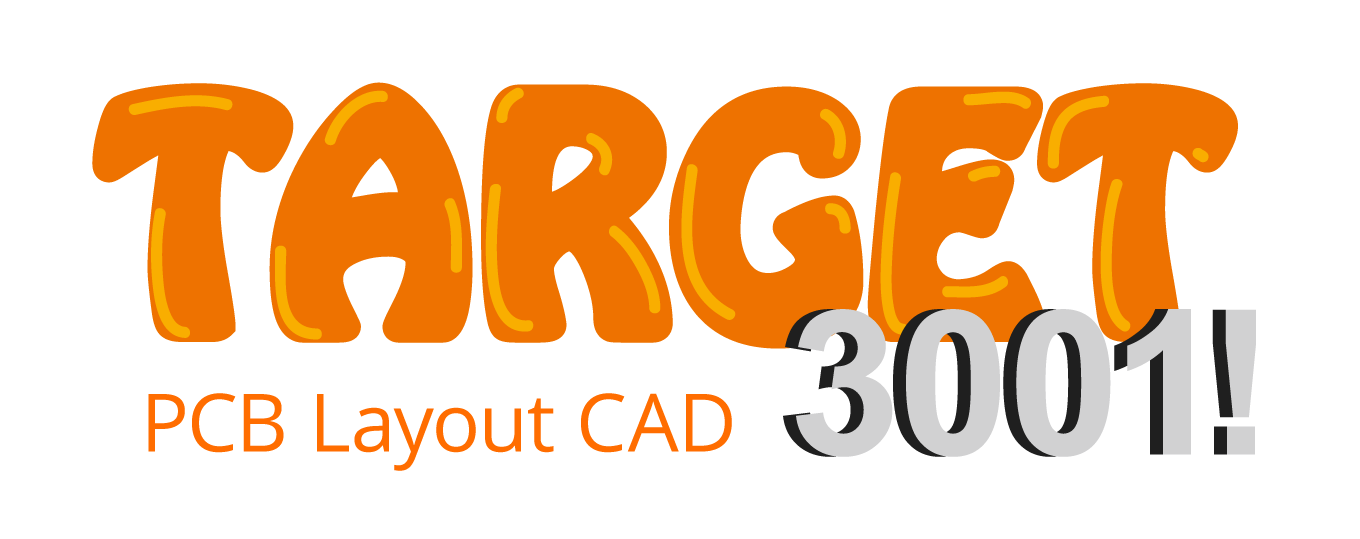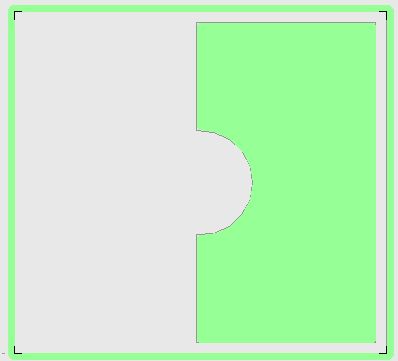Flat milling with raised remainder: Difference between revisions
No edit summary |
No edit summary |
||
| Line 9: | Line 9: | ||
'''Solution:''' | '''Solution:''' | ||
Divide the rectangle around the circle in 2 halves. Leave out a semi-circle from the middle in each of the two halves. Mill these two forms flat a bit so that the center cylinder remains at the end.<br><br> | Divide the rectangle around the circle in 2 halves. Leave out a semi-circle from the middle in each of the two halves. Mill these two forms flat a bit so that the center cylinder remains at the end.<br><br> | ||
Remember that a flat milling only works within the boundaries of a frontpanel contour. The edge can be very narrow but at least a bit more than 1 nanometer inside of it. That is how you start:<br><br> | |||
[[Image:Flachfraesen1a_e.jpg|none]]Image: Draw half a rectangle using the unfilled rectangle tool from the drawing menu.<br><br> | |||
[[Image:Flachfraesen1a_e.jpg|none]] | Highlight it and get black boxes at its ends. Now give it a right click [[M2]] on the middle box. Now this context menu appears: | ||
Draw half a rectangle using the unfilled rectangle tool from the drawing menu. Highlight it and get black boxes at its ends. Now give it a right click [[M2]] on the middle box. Now this context menu appears: | |||
[[Image: flachfraesen2_e.jpg]]<br> | [[Image: flachfraesen2_e.jpg]]<br> | ||
Revision as of 11:58, 29 July 2019
Please also note: Crash course frontpanel.
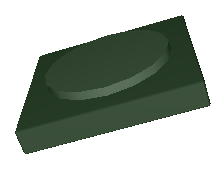
Problem:
You want to remove 1mm from a 4mm thick front panel, with a cylinder remaining in the middle. Optically a cylinder of 1mm height lies on top of a rectangular plate. How do you mill such a thing?
Solution:
Divide the rectangle around the circle in 2 halves. Leave out a semi-circle from the middle in each of the two halves. Mill these two forms flat a bit so that the center cylinder remains at the end.
Remember that a flat milling only works within the boundaries of a frontpanel contour. The edge can be very narrow but at least a bit more than 1 nanometer inside of it. That is how you start:
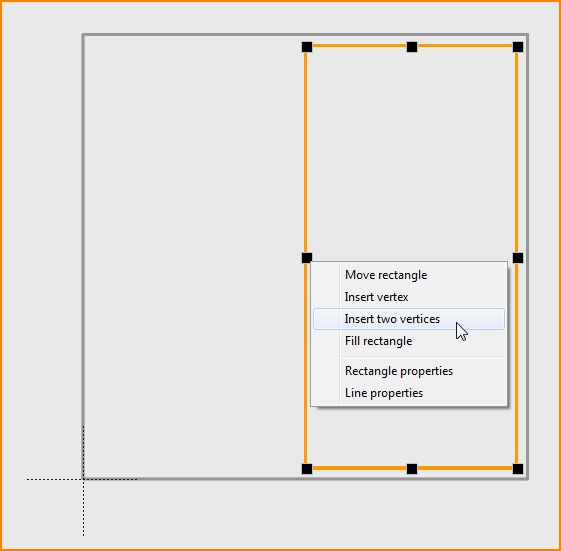
Image: Draw half a rectangle using the unfilled rectangle tool from the drawing menu.
Highlight it and get black boxes at its ends. Now give it a right click M2 on the middle box. Now this context menu appears:
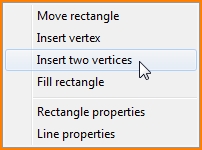
Image 2: Select "Insert two vertices"
The ligne will be divided in 4 parts. Now you can move each of the little inner box by left mousekey held M1H. Now drag the inner line segment to a half circle.
File:Flachfraesen3.jpg
Image 3: Look at sidebar to the right, select the arc-tool, drag the line to an arc.
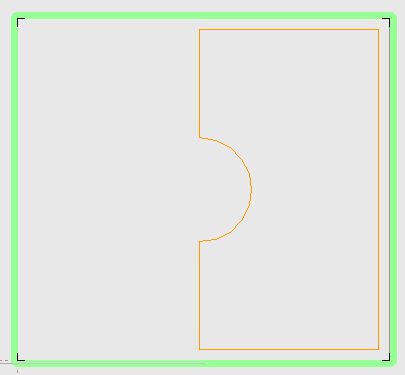
Image 1: The half is highlighted in orange.
Now select the structure consisting of an arc and 5 straight lines and press the [e] key to edit.
File:Flachfraesen4.jpg
Image 4: Ändern-Dialog
Now you enter the new property FPBREAKOUTDEPTH and 1.000.000 for this object (one million). TARGET works internally in nanometers (nm). One nanometer is one millionth of a millimeter. In other words: 1.000.000nm = 1mm.
The lines now represent the boundary of a flat milling that is one millimeter deep. Copy and paste it for the second half and have it produced.
